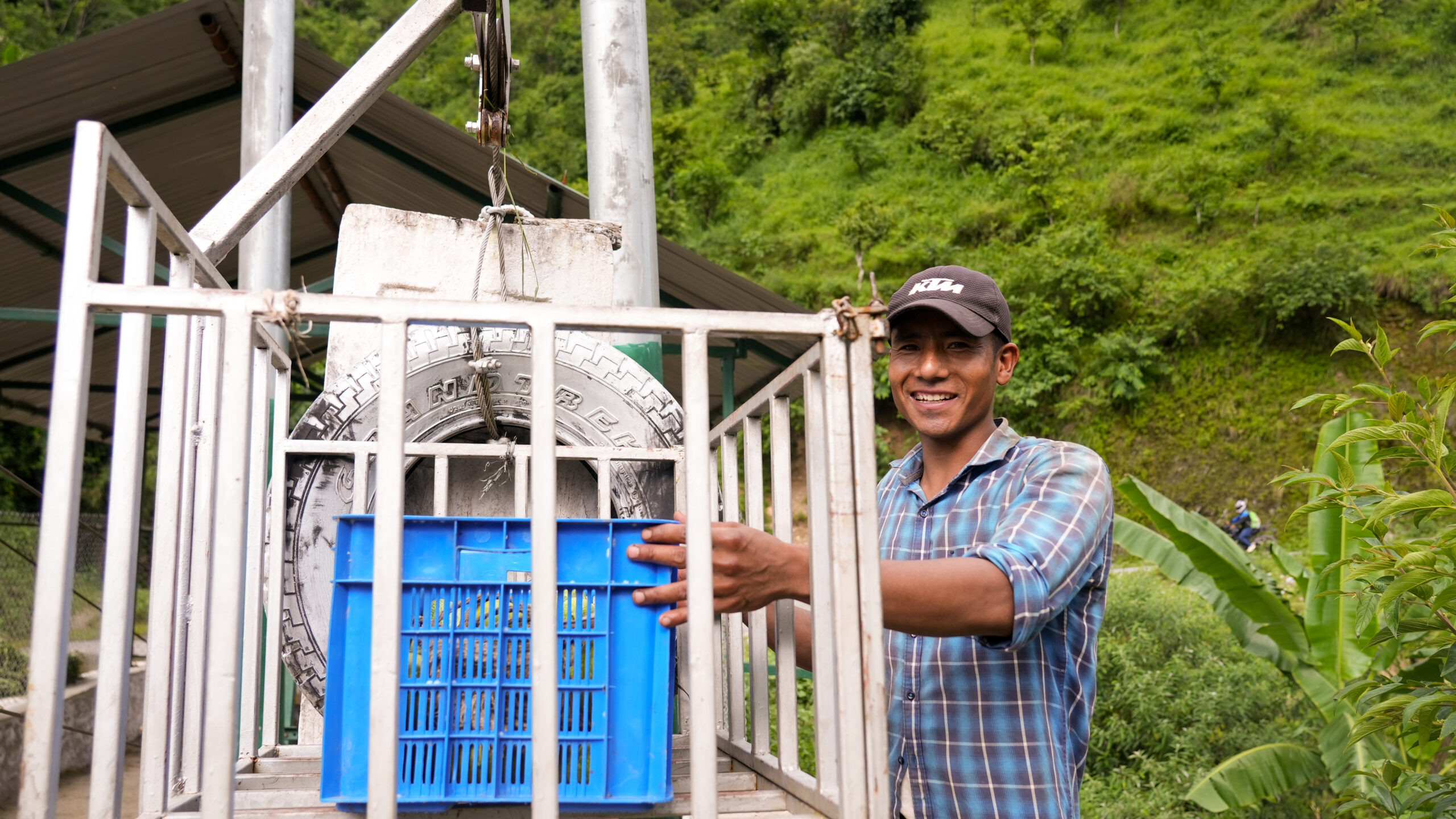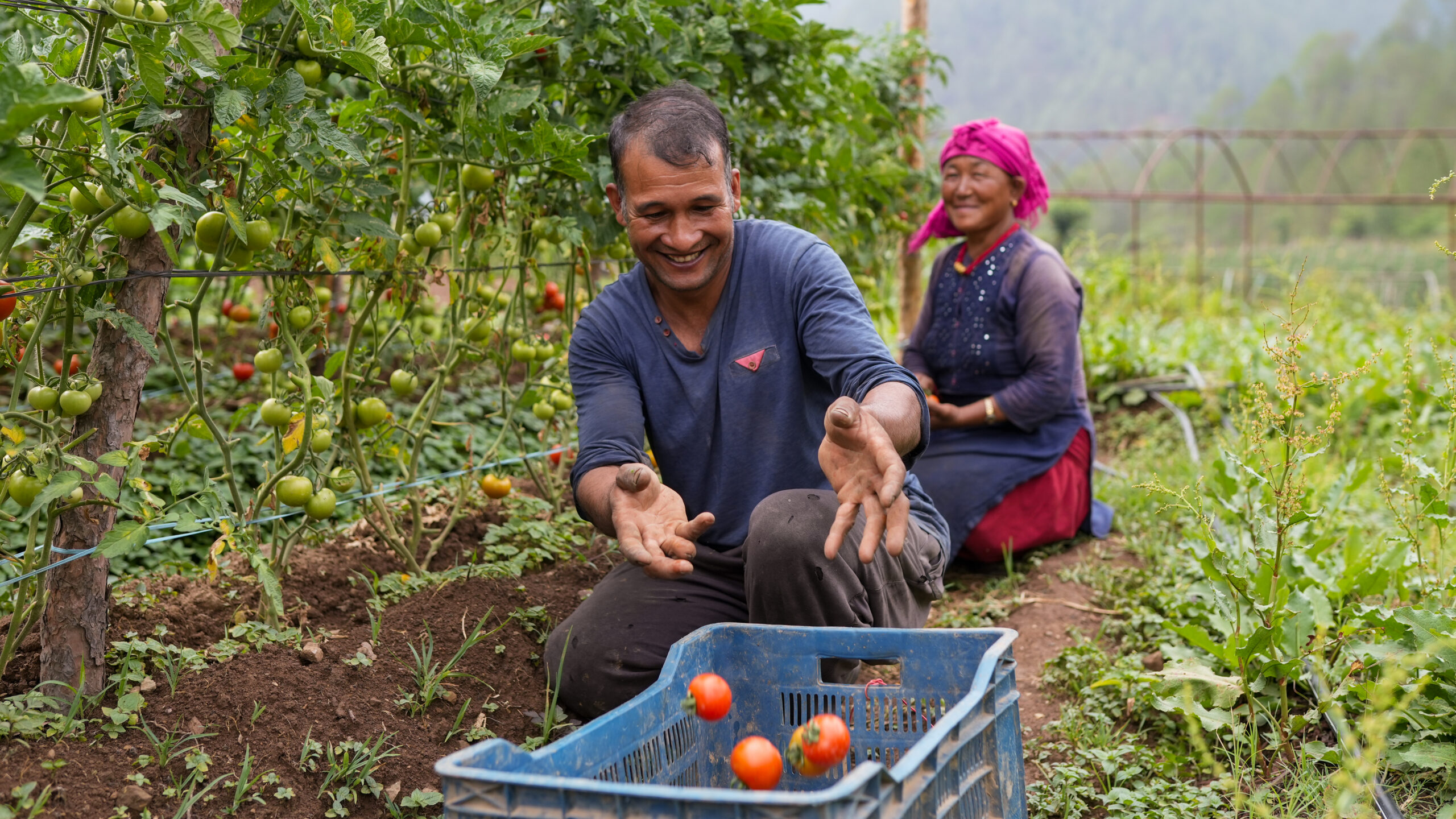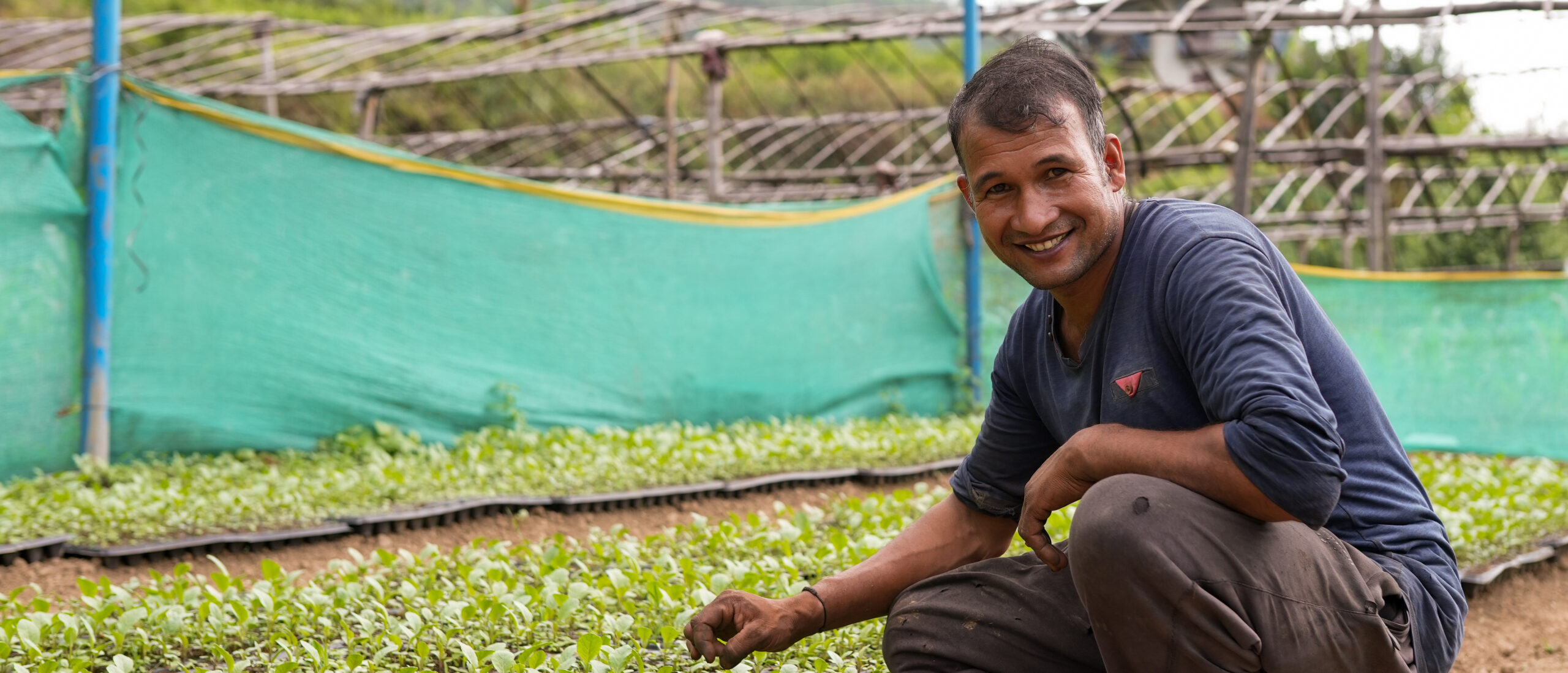
With backing from the UK public, Practical Action’s climate resilience work is equipping rural Nepali farmers in the districts of Dang, Rolpa, and Rukum East, areas struggling with high poverty levels and limited agricultural productivity-to thrive amid escalating climate challenges.
The £3.5 million for the project was made possible by £1.75 million raised through Practical Action’s Turning the table on climate change appeal, supported by donations from the UK public. This was then matched by the UK government.
Together, this funding has played a key role in empowering thousands of farmers in some of Nepal’s most marginalised regions.
In these communities, climate change is having devastating effects: unpredictable rainfall, extended droughts, and rising temperatures are making farming increasingly difficult.
For smallholder farmers, especially women, the hardships of limited income and restricted farming options had been only getting worse.
Through this work, Practical Action is working with over 6,000 farmers, supporting them with the tools, training, and resources they need to adapt to climate change. Together, they are embracing sustainable agriculture practices, building reliable irrigation systems, and strengthening market access. This initiative is helping Nepali farmers increase their resilience, improve crop yields, and boost household incomes, creating lasting change in some of the country’s most vulnerable regions.
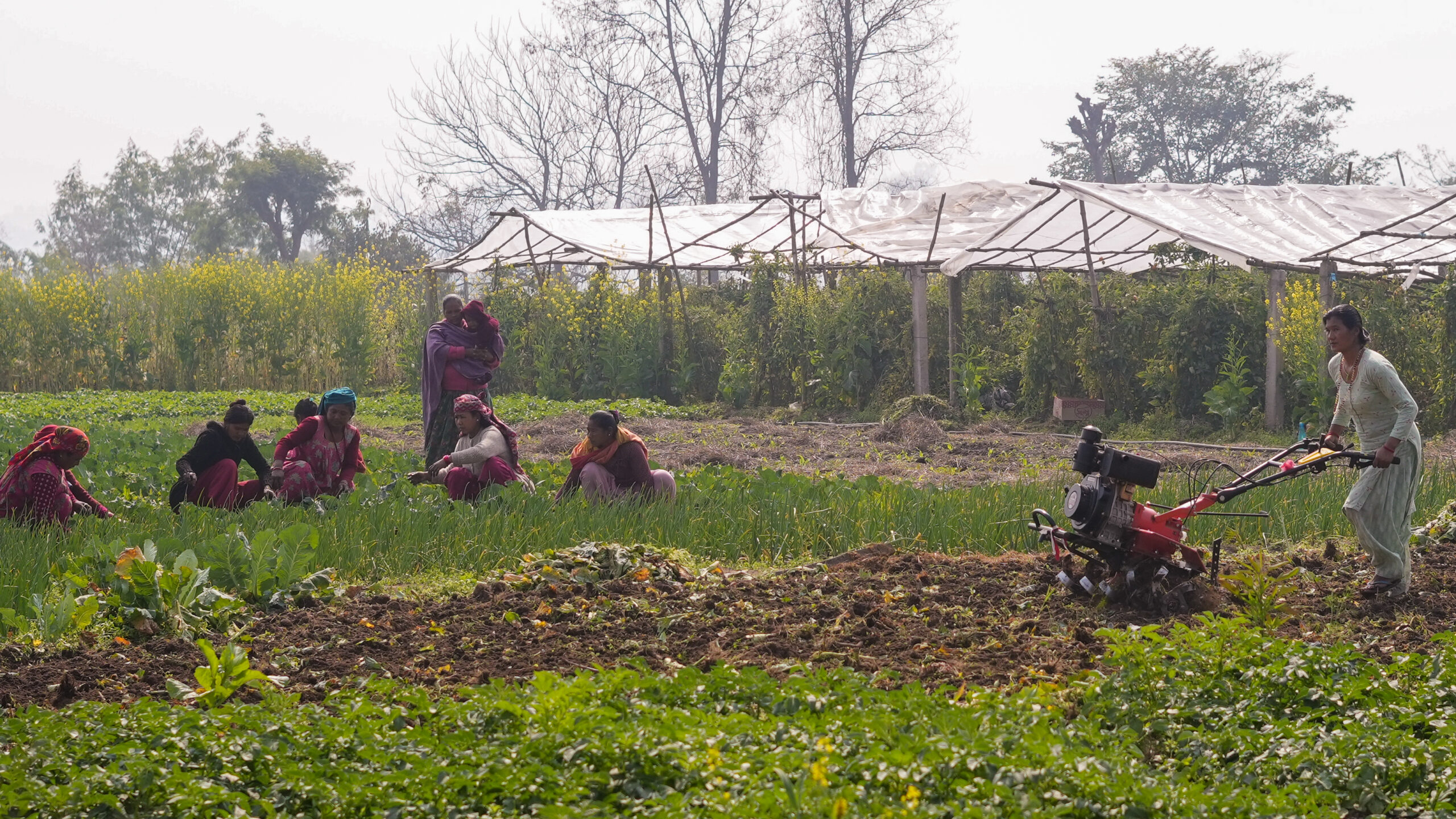
Dev Datta Bhatta, Practical Action’s project manager for the work, said
“One of the things I love most about working with Practical Action is seeing families and communities come together with our team to tackle challenges head-on. Together, we listen, learn, and figure out exactly what they need to overcome climate challenges.
“It’s especially inspiring to see women stepping into leadership roles, using the tools, training, and market access we provide to build resilience, boost incomes, and create a sustainable future for their families. Watching this and being part of their journey is truly rewarding.”
The work delivered in numbers:
Community resilience:
- So far, over 6000 project participants have been directly supported by the work.
Climate field schools (CFS) and knowledge sharing:
- A total of 224 climate field schools have been established, each led by a trained leader farmer who actively shares agricultural knowledge with their community, fostering peer learning and skill dissemination across the project areas.
Enhanced market access and agricultural expansion:
- 2,853 farmers have achieved higher market prices for their produce, reflecting strengthened market linkages.
- 3,507 farmers have expanded their cultivated land, while 5,184 are now using improved seed varieties for increased crop productivity.
- 4,204 farmers have gained access to reliable irrigation, helping to boost yields and reduce water scarcity impacts.
Empowering women through labour-saving technologies:
- 1,038 women farmers have adopted labour-saving devices, such as corn shellers and farm rakes, reducing physical workload and freeing time for other profitable activities and community participation.
Promotion of sustainable farming practices:
- Approximately 1,350 leader farmers are now practicing agroecology and regenerative farming, using sustainable techniques like composting and bio-fertilizers to improve soil health and decrease reliance on chemical pesticides.
Training in business literacy and record-keeping:
- 6,013 farmers, including 4,894 women, have received training in record-keeping and business literacy at the climate field schools, enhancing their financial management skills and ability to operate farms as sustainable enterprises.
Increased women’s leadership and policy participation:
- 2,032 women have engaged in local government and cooperative planning, implementation, and monitoring activities, strengthening their roles in community decision-making.
- 1,871 women have participated in policy discussions, advocating for community and agricultural improvements.
- 1,658 farmers have received subsidies, supporting them in enhancing their agricultural productivity and resilience.
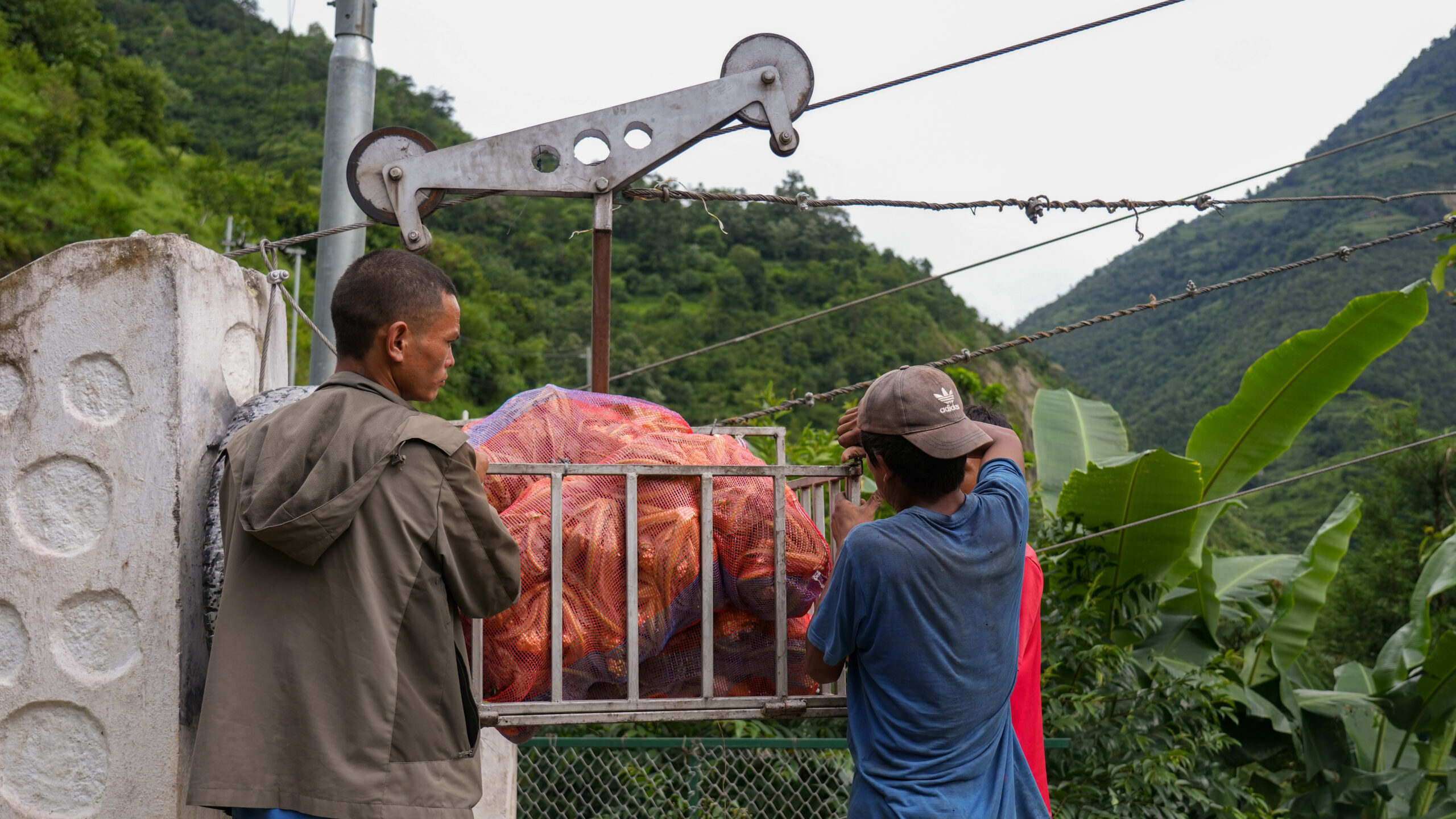
Bishnu Oli, a woman farmer from Pariwartan village, said
“We used to face severe water shortages, with no access to water, and the drought felt endless. We could barely farm and often had to rely on vegetables in the market for a meal. But with the solar irrigation system from the project, we now have water and can grow crops in multiple seasons.
This has doubled our income and reduced the workload, especially for women in the community. Around 30 households in our village are now farming all kinds of vegetables. We also attend the Climate Field School, where we are learning about climate change, adapting to new conditions, and understanding crop patterns.”
The project is not only addressing climate challenges but also driving long-term economic growth in Nepal’s most vulnerable communities.
Bibas Roka, a farmer from Kuchibahang village said
“Before this project began, we only farmed for our own consumption and weren’t involved in commercial farming. We couldn’t scale up because we lacked irrigation facilities and necessary infrastructure like roads. It was a difficult situation. But with the project’s support, we were able to establish an irrigation system, and that’s when we began cultivating a variety of vegetables.”
Turning the table on Climate Change project was supported by the UK government through UK Aid Match, a programme that matches public donations to aid projects and managed by Practical Action and Development Concern Society (DECOS).
